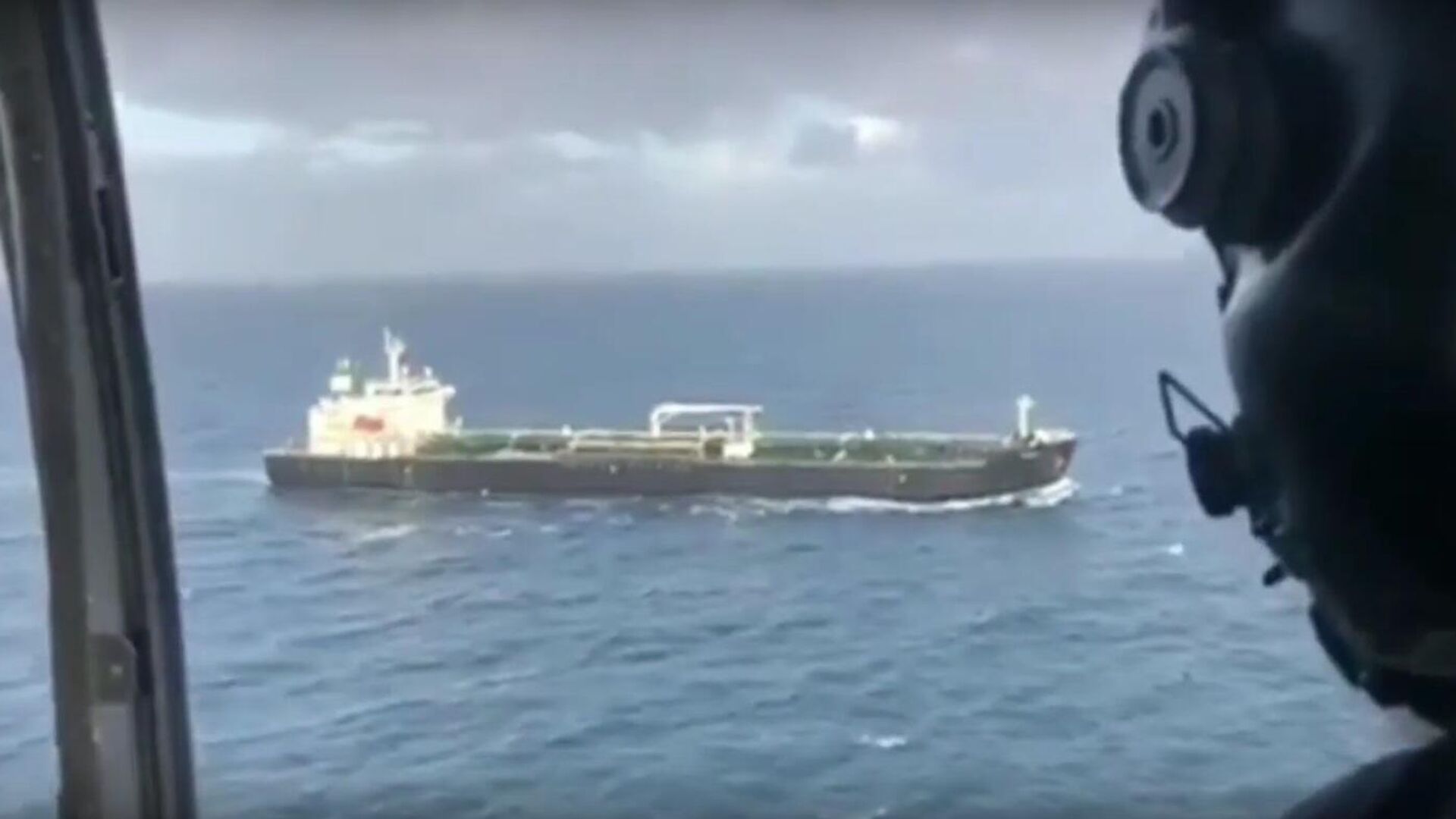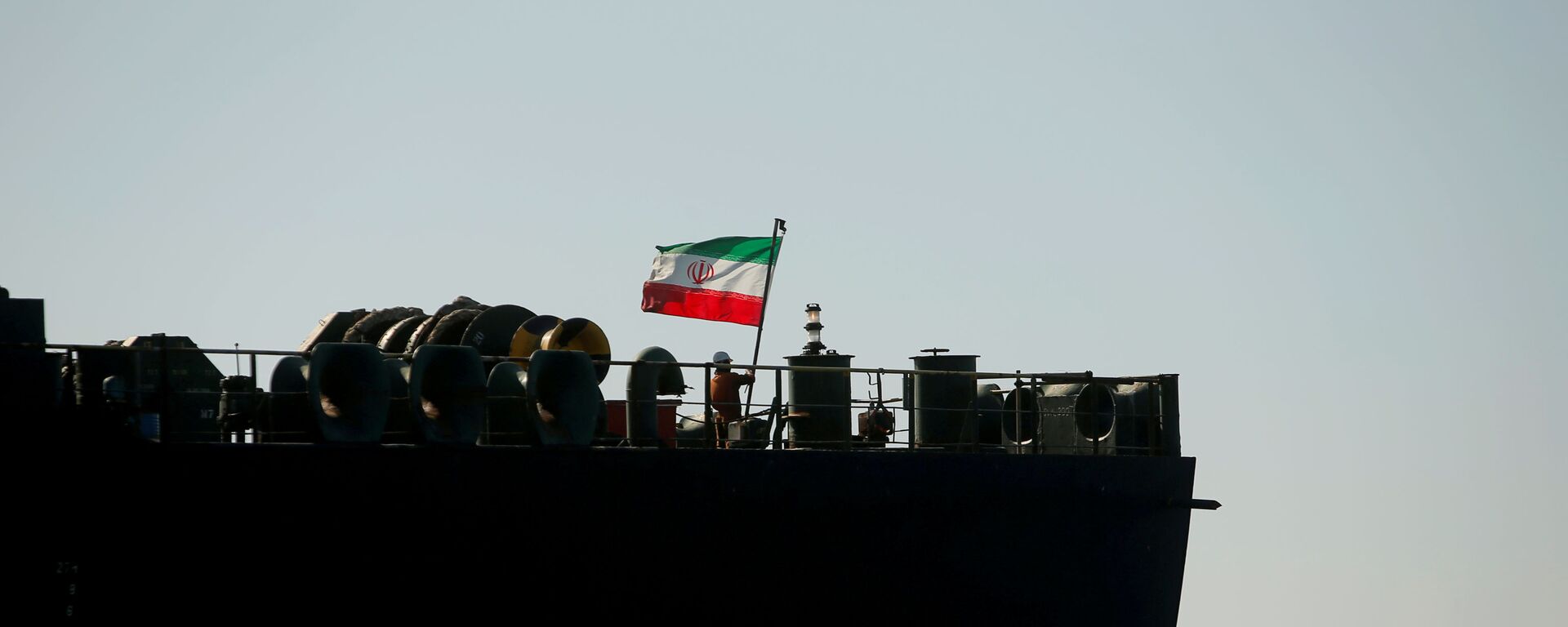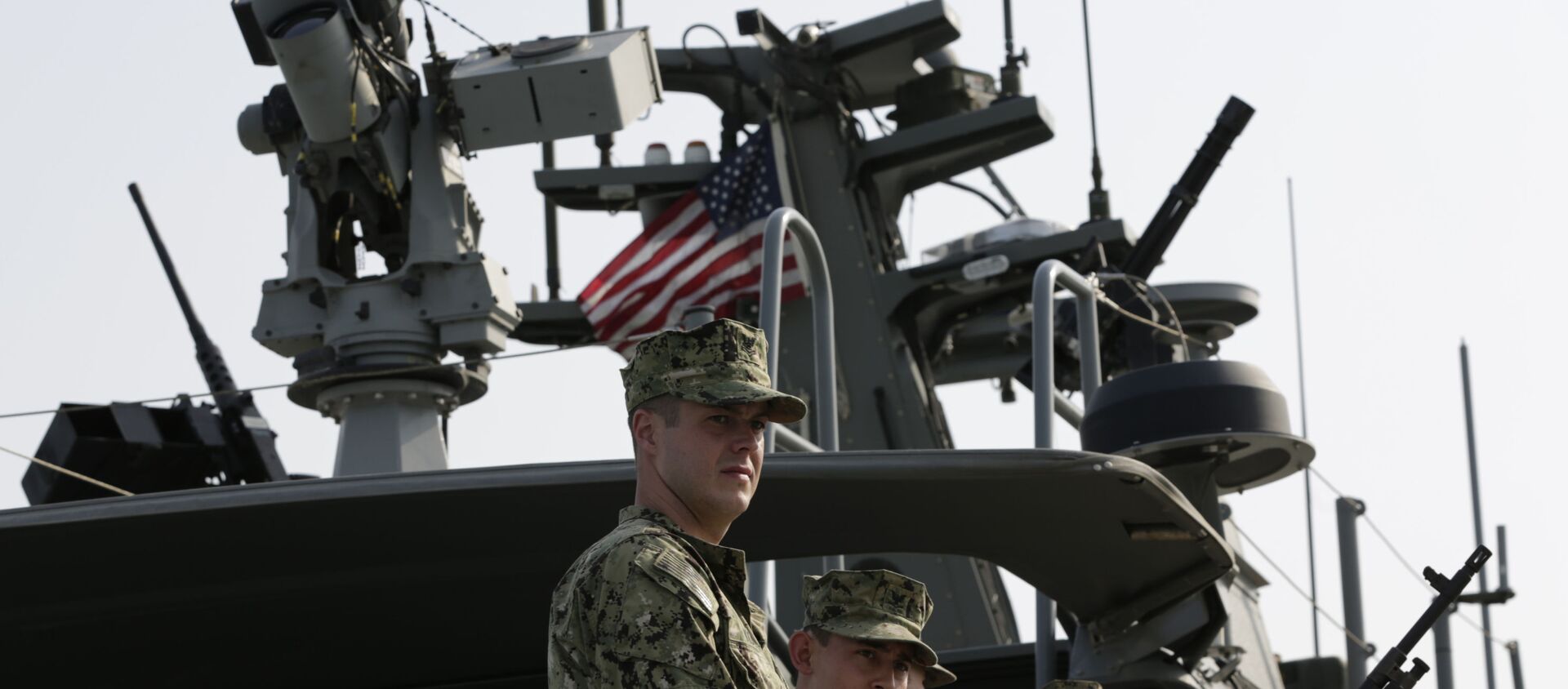Iranian Tanker Delivering Emergency Fuel to Lebanon Reportedly Spotted Off Syria’s Coast
13:12 GMT 14.09.2021 (Updated: 16:46 GMT 08.01.2023)

© Photo : YouTube/Voice of Iran
Subscribe
Lebanon’s Hezbollah movement secured an agreement with Iran on the emergency delivery of fuel supplies to the energy-starved Mediterranean nation last month. The United States and its regional allies consider Hezbollah a ‘terrorist’ organization, and Washington has repeatedly threatened to sanction any country that buys Iranian oil.
Independent oil tracking service TankerTrackers.com appears to have spotted an Iranian vessel discharging fuel supplies destined for Lebanon off the coast of Syria.
In a tweet Tuesday, the tracking service pointed to the presence of Iranian handysize tanker Faxon off the coast of Baniyas, a small Syrian city about 60 km north of the Lebanese border.
BREAKING, VISUAL CONFIRMATION: The Iranian handysize tanker FAXON (9283758) is discharging 33,000 metric tons of gasoil. Unable to deliver directly by sea to Lebanon due to sanctions, the vessel went instead to Baniyas, Syria for land transfer. Shall require 1,310 truckloads. pic.twitter.com/Z2kL8wyuTE
— TankerTrackers.com, Inc. (@TankerTrackers) September 14, 2021
TankerTrackers accompanied its tweet with a satellite image snapped by private US-based earth imaging company Planet Labs. Along with the Faxon, the image shows dozens of large oil storage tanks inland from the coast. Baniyas is known to contain a major oil refinery, power station, and other energy infrastructure.
The service estimates that the Faxon contains about 33,000 metric tons of fuel oil onboard, enough for 1,310 tanker truckloads. Last week, media reports indicated that the fuel would be delivered to Lebanon by truck to avoid potential US sanctions – which Washington has repeatedly threatened to levy against any nation that buys Iranian oil.
On Monday, Hezbollah secretary-general Sayyed Hassan Nasrallah confirmed that the first Iranian tanker carrying emergency fuel supplies to Lebanon docked in Syria on Sunday, and indicated that the gasoil should make its way to Lebanon by Thursday.
Nasrallah, whose party made the fuel deal with Iran possible, said that a second Iranian tanker would arrive at Baniyas in the coming days, with two more – one carrying gasoline and another fuel oil, to arrive after that.
After making their way into Lebanon, the first fuel trucks are expected to be sent to hospitals to help power emergency generators, with other areas to be served after that.
Lebanon is in the midst of a months-long fuel crisis, which began earlier this year after the cash-strapped government ran out of hard currency to pay for its energy supplies. The shortages have prompted the Mediterranean nation’s power utility company to reduce generation dramatically, and have forced businesses and households to rely on fuel oil-powered private generators or go without power. The energy crisis is the result of a broader economic, financial and banking collapse plaguing the nation – starting in mid-2019 and accelerating thanks to COVID and last year’s massive ammonium nitrate blast at Beirut’s port, which killed over 200 people, injured more than 7,000 and displaced 300,000 others while causing over $15 billion in property damage.
Hezbollah has labeled the fuel agreement with Iran as a major victory “in the face of US oppression and its crimes against humanity,” accusing America of engaging in a “siege” of Lebanon, and vowing to continue resistance. The Shiite political and militant group, which is labeled a ‘terrorist organization’ by Washington, plays a major role in Lebanon’s sectarian-based politics.
Last week, an Iranian official indicated that Tehran would be prepared to sell additional fuel supplies to the Lebanese government or to individual Lebanese businesses if asked.
The terms of the Iran-Lebanon fuel sales agreement remain under wraps, and it is not known how cash-strapped Beirut has paid or is preparing to pay for the energy. In the past three years, in the face of crushing US sanctions against its oil sector, Iran has reportedly been willing to sell energy to other countries at cut rates, or even deliver it as aid, providing emergency assistance to Caracas and Damascus amid US attempts to overthrow the Venezuelan government and Washington’s ongoing occupation of oil-rich eastern Syria, for example.


